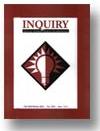rCritical thinking means the process of applying, analyzing, and evaluating information gathered from observation, experience, reflection, or communication. It is based on such values as: clarity, accuracy, precision, consistency, relevance, sound evidence, good reasons, and fairness. Critical thinking focuses on deciding what to believe or do. People are thinking critically when they rely on reason rather than emotion, require evidence, follow evidence where it leads, and are concerned with finding the best explanation.
This paper will discuss three following questions:1.Who is a critical thinker?2.Why critical thinking is so important?3.What are the benefits of critical thinking?Who is a Critical Thinker?A critical thinker is a person with an attitude of desiring to avoid nonsense, to find the truth and to discover the best action. A critical thinker needs to be fair and open-minded even with people he disagrees with, because he needs to give them a fair hearing.
A critical thinker goal is not just to confirm what is already believed.
"A person who thinks critically can ask appropriate questions, gather relevant information, efficiently and creatively sort through this information, reason logically from this information, and come to reliable and trustworthy conclusions about the world that enable one to live and act successfully in it"( Schafersman ,1991).
No person is born with critical thinking skill, because it is a learned ability that must be taught but cannot be taught reliably to students by peers or by most parents. A critical thinker needs to use evidence skillfully and impartially, distinguish between logically valid and invalid conclusions, and understand the degrees of belief.
Why Critical Thinking is so Important?Critical thinking is very important, because it enables one to analyze, evaluate, and restructure one's thinking, decreasing the risk of acting on, or thinking with, a false premise. Joanne Jacobs (2007) stated,


